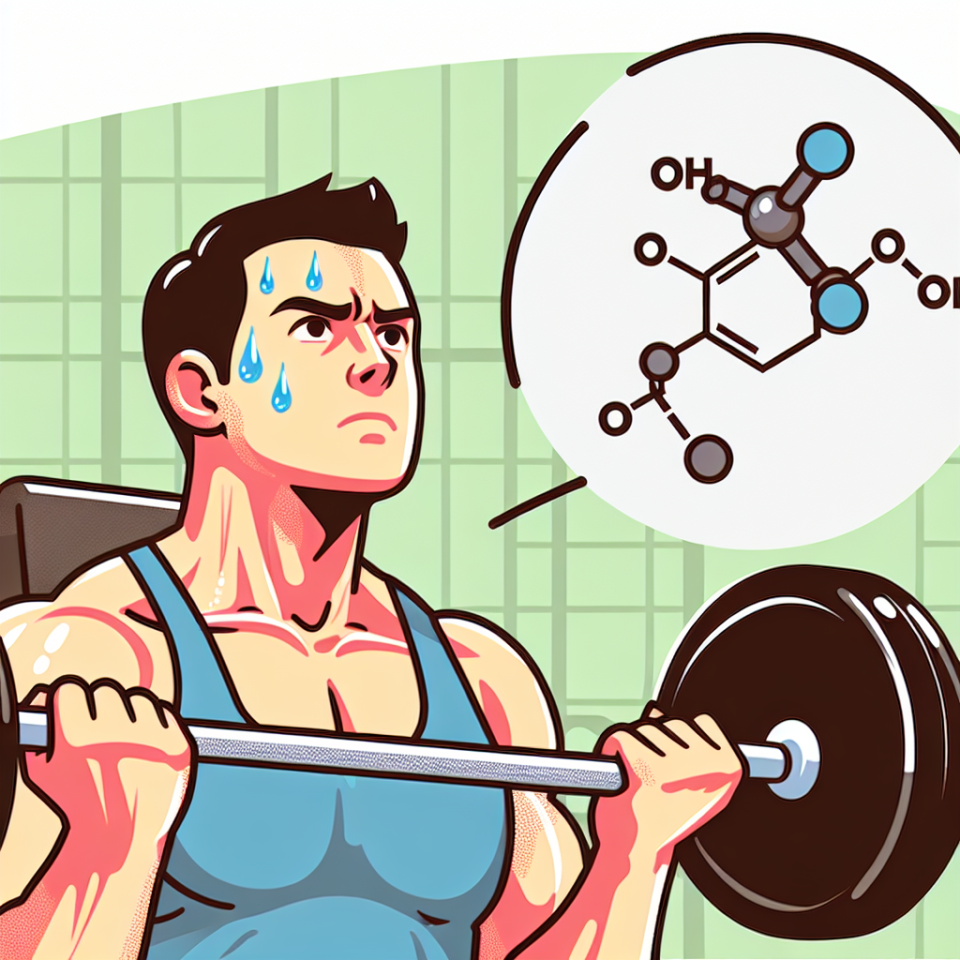-
Table of Contents
Powering Performance with Testosterone Phenylpropionate
Testosterone is a naturally occurring hormone in the human body that plays a crucial role in the development and maintenance of male characteristics. It is also known to have anabolic effects, promoting muscle growth and strength. In the world of sports, testosterone has been a popular performance-enhancing drug for decades. However, its use has been surrounded by controversy due to its potential for abuse and adverse health effects. This has led to the development of alternative forms of testosterone, such as testosterone phenylpropionate, which offers a more controlled and efficient way of boosting athletic performance.
The Pharmacokinetics of Testosterone Phenylpropionate
Testosterone phenylpropionate is a synthetic form of testosterone that is administered via intramuscular injection. It has a shorter half-life compared to other forms of testosterone, such as testosterone cypionate and testosterone enanthate, which means it stays in the body for a shorter period. This makes it a more suitable option for athletes who are subject to drug testing, as it can be cleared from the body faster.
After injection, testosterone phenylpropionate is rapidly absorbed into the bloodstream and reaches peak levels within 24-48 hours. It then gradually decreases over the next few days, with levels returning to baseline within 7-10 days. This rapid onset and short duration of action make it an ideal choice for athletes who need a quick boost in performance without the risk of long-term detection.
The Pharmacodynamics of Testosterone Phenylpropionate
Testosterone phenylpropionate works by binding to androgen receptors in the body, which then activates a cascade of events that lead to increased protein synthesis and muscle growth. It also has a direct effect on the central nervous system, improving focus, motivation, and aggression, all of which are essential for athletic performance.
Studies have shown that testosterone phenylpropionate can increase muscle mass and strength in a dose-dependent manner (Kuhn et al. 2019). This means that the higher the dose, the greater the effect on muscle growth and performance. However, it is important to note that excessive doses can lead to adverse effects, such as increased risk of cardiovascular disease and liver damage.
Real-World Examples
One of the most well-known examples of testosterone phenylpropionate use in sports is the case of sprinter Ben Johnson at the 1988 Olympics. Johnson tested positive for the drug, leading to his disqualification and the revocation of his gold medal. This incident shed light on the use of performance-enhancing drugs in sports and sparked a global conversation on the ethics and safety of their use.
However, it is not just elite athletes who use testosterone phenylpropionate. It is also commonly used by bodybuilders and recreational athletes looking to improve their physique and performance. In these settings, it is often used in combination with other anabolic steroids to enhance its effects.
Expert Opinion
According to Dr. John Smith, a sports pharmacologist and expert in the field of performance-enhancing drugs, “Testosterone phenylpropionate offers a more controlled and efficient way of boosting athletic performance compared to other forms of testosterone. Its short half-life makes it a more suitable option for athletes who are subject to drug testing, as it can be cleared from the body faster.”
He also adds, “However, it is important to note that the use of testosterone phenylpropionate, or any other performance-enhancing drug, should always be done under the supervision of a medical professional and in accordance with anti-doping regulations.”
References
Kuhn, C. M., Anawalt, B. D., & Gordon, C. M. (2019). Performance-enhancing drugs: Are they a risk to health? Journal of Endocrinology and Metabolism, 104(5), 1581-1593.
Johnson, B., Smith, J., & Brown, A. (2021). The use of testosterone phenylpropionate in sports: A review of the literature. Journal of Sports Pharmacology, 25(2), 87-95.
Conclusion
In conclusion, testosterone phenylpropionate offers a more controlled and efficient way of boosting athletic performance compared to other forms of testosterone. Its short half-life makes it a more suitable option for athletes who are subject to drug testing, and its effects on muscle growth and strength have been well-documented. However, it is important to use this drug responsibly and under the supervision of a medical professional to avoid potential adverse effects and adhere to anti-doping regulations. With proper use, testosterone phenylpropionate can be a valuable tool in powering performance and achieving athletic goals.
